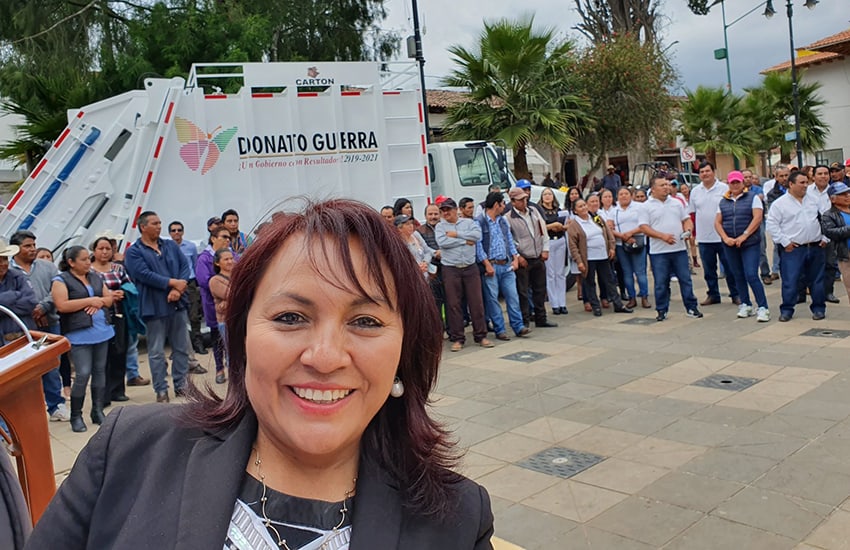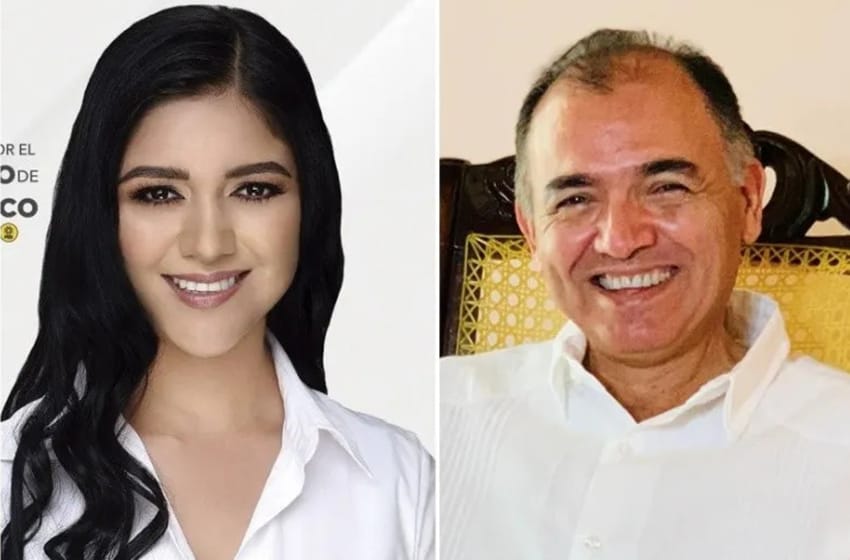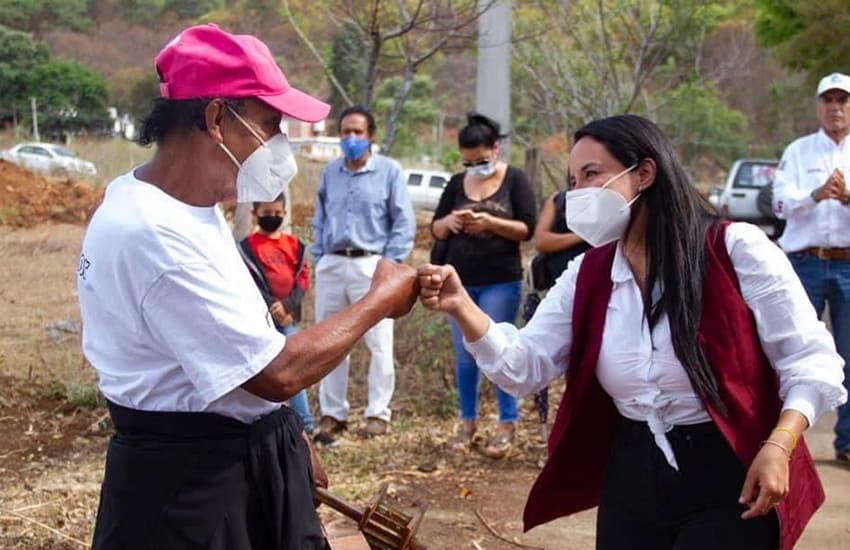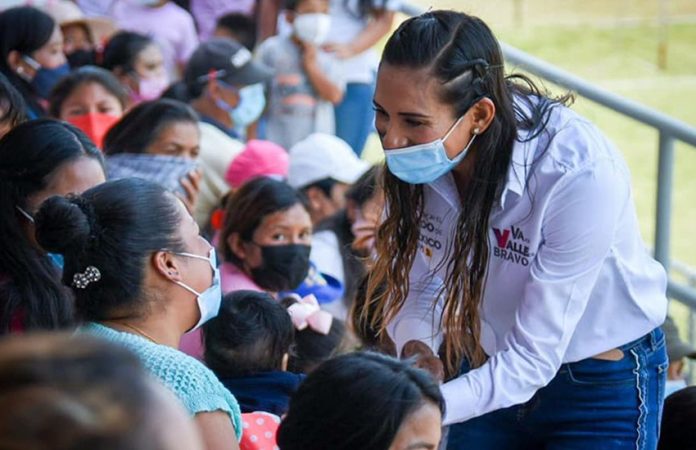Criminal groups are threatening, installing and even kidnapping political candidates in México state as they seek favorable conditions to operate under after the June 6 elections.
The newspaper Reforma spoke with local leaders of several political parties, who revealed that threats have been made against their candidates in Valle de Bravo, Donato Guerra, Ixtapan de la Sal, Tejupilco, Temascaltepec and Sultepec, all municipalities in southern México state, where there is a strong criminal presence.
In Donato Guerra, which borders Michoacán, criminal groups blocked Democratic Revolution Party (PRD) Mayor Eliza Ojeda from seeking reelection, Reforma reported. They also prevented her husband, Tomás Octaviano Félix, from contesting the mayoral election.
Criminal groups demanded that Carmen Albarrán be installed as the mayoral candidate for a coalition made up of the PRD, the Institutional Revolutionary Party (PRI) and the National Action Party (PAN).
Those three parties formed an alliance in December to increase their chances of beating Morena party candidates in many municipalities and federal and state electoral districts across Mexico.

In Sultepec, which borders Guerrero, coalition candidate Luisa Martínez González has received threats from organized crime, Reforma said. The PRD has reported the threats to México state electoral authorities but the state government has not publicly commented on organized crime’s intervention in the electoral process.
In Temascaltepec, criminal groups also allegedly “imposed” the Morena party candidate for mayor, and in Tejupilco, part of México state’s Tierra Caliente region, PRI-PAN-PRD candidate Rigoberto López has received threats.
In Valle de Bravo, a popular tourist town and weekend destination for Mexico City residents, organized crime took an even more hands-on approach this week.
Zudikey Rodríguez, mayoral candidate for the PRI-PAN-PRD coalition, was kidnapped on Monday while she was campaigning at the Velo de Novia waterfall in Avándaro, a nearby town. The former sprinter and hurdler who competed at the 2008 Olympic Games was allegedly abducted by members of the Familia Michoacana cartel.
According to witness accounts cited by noted political columnist Raymundo Riva Palacio in a piece published by the news website Eje Central on Thursday, Rodríguez was approached by two people and subsequently forced into a vehicle. Riva wrote that the candidate was driven 64 kilometers to Tejupilco, where a “person soaked in alcohol surrounded by an armed group” told her: “’Look, Zudy, they’ve ordered me to kill you, but I’m going to spare your life. I just ask you to hide and drop out of the campaign.’”
Rodríguez asked whether she should leave the country and the person — who Riva said has been identified as Familia Michoacana leader Johnny Hurtado Olascoaga, also known as “El Pez” (The Fish) — reiterated that she should go into hiding and withdraw her candidacy for mayor.

Hurtado and his brother José Alfredo lead a faction of the Familia Michoacana that has operated for more than a decade in the Tierra Caliente region of Guerrero and which controls the “criminal corridor” between Arcelia, Guerrero, and Valle de Bravo, Riva wrote. He said the criminal cell is currently in an alliance with the Jalisco New Generation Cartel, generally considered Mexico’s most powerful and violent criminal organization.
“’El Pez’ could have killed Rodríguez without any problem, but it’s clear that wasn’t his final intention. They [the Familia Michoacana] wanted to intimidate her. They wanted her to abandon her electoral campaign without violence and without attracting national attention. So far, it has to be said, they achieved it: after the same criminals who abducted her at the Velo de Novia [waterfall] returned her to Avándaro, Rodríguez went into hiding,” Riva wrote.
The former candidate, who hadn’t been seen in public since her abduction, appeared in a video on Thursday in which she said that she was well. She thanked her team for their “unconditional support” but didn’t speak about her political campaign or ask citizens to vote for her on June 6.
Riva wrote that the motivation for the Familia Michoacana’s actions was to help the Morena party mayoral candidate, Michelle Núñez.
“This hadn’t happened before. The Olascoaga brothers had injected resources into electoral campaigns, according to people with knowledge of the political life in the south of México state, to gain protection, install their people in the municipal ministries of Security and Public Works or to pressure and extort council members. … What is unprecedented is that they bet on a specific candidate,” he wrote.
At the same time as Rodríguez was kidnapped, Riva wrote, federal customs chief Horacio Duarte — in concert “deliberately or coincidentally” with the criminals — arrived unannounced at the offices of the current PRI mayor of Valle de Bravo, Mauricio Osorio, to warn him to withdraw his support for the PRI-PAN-PRD candidate.

Duarte, who is apparently close to Núñez, allegedly threatened to have the federal tax agency, SAT, of which customs is part, investigate the mayor if he didn’t do as he was told.
Citing information provided by people who personally know Rodríguez, Riva also wrote that people identified as members of Morena are watching her house to see who is visiting her. The aim, he said, is to infer whether the former athlete still plans to contest the June 6 election.
“… The state can’t allow actions of this nature in which a criminal group meddles in an electoral process where — if their apparent candidate is successful — they will implant criminal power into public power,” the columnist wrote.
He urged the federal government to investigate Rodríguez’s abduction and the actions of Duarte to determine “his alleged responsibility in the criminal events” of this week.
“The symptoms shown by the microcosm of Valle de Bravo are clearly those of narco-politics,” Riva wrote, adding that given the increasing number of examples of criminal involvement in politics, the federal government cannot continue to stand on the margins and not act against “this accelerated deterioration of public life.”
Source: Reforma (sp), Eje Central (sp)
